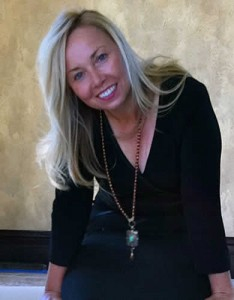6

Best-selling romance-fiction novelist Inglath Cooper has 19 books to her credit, including 11 books that were published traditionally through Harlequin. In the past year, the RITA-award-winning author has used the Pressbooks platform to release eight of her books independently on Amazon.
Today, Cooper’s popular Nashville series is tearing up the charts, with book one ranked No. 95 in Genre Fiction in the Kindle store.
Cooper, who wears many hats as author, businessperson and animal rescue advocate, pulled away from her busy life to talk with us about her adventures and advice in self-publishing, as well as how she uses Pressbooks to simplify her workflow.
You’ve had books that were published by major imprints and a number that you self-published. How were those processes different and which did you prefer?
I had wonderful experiences with traditional publishing. I am extremely grateful for the opportunities I had and the editorial advice that I was given and the readers that I was able to find along the way. With independent publishing now, you have the opportunity to put stories out in your original vision. [The synopsis and chapter proposal process typical to traditional publishing contracts] was not the best for me. I found that getting someone else involved at that point really hurt the ability to go on with the story. I would rather sit down and write the complete book. With independent publishing, for better or for worse, you write the book as you see it. It’s been extremely rewarding to write a book just completely as I wanted to write it and the story as I wanted to tell it.
But you still work with an editor.
I absolutely do hire editors later in the process after I’ve done several drafts of the book. But I think sometimes if you let someone get involved early in the process it can be difficult to go on and get the book out as you might have originally seen it. What always has to come first is that you are just completely diligent about your craft whether you are publishing through a traditional publisher or independently.
How were you able to cultivate an audience when you became self-published?
You have to build a readership whether you’re going traditional or independent. You’re operating as publisher, and a publisher gets books out to readers and you have to find readers who like your view of the world and the kind of story that you have to tell. I think we have tools now that we’ve never had before. [Ed note: Cooper primarily uses targeted marketing through her Facebook page where she has 39,000 likes, plus email marketing (giving free downloads of her book to those who sign up to her sizable mailing list) to build her audience.]
How do you use Pressbooks in your writing workflow?
I love being able to from a first draft, be able to put the book into that format. I just copy and paste chapters from my Word doc into the individual chapters in the Pressbooks format and then I can review all my drafts. I just export the mobi file and can work on the draft on my iPad or just read it where it already actually looks like a book. For me, the main thing is the control over that piece of the publication process and being able to go through as many times as I need to. I do the final editing on my actual iPad with the mobi file from Pressbooks.
What do you like best about Pressbooks?
What I’ve loved about finding Pressbooks is the ability that it gives me to edit kind of constantly and anytime something comes up that I want to change in a book that’s already out, it’s just incredibly easy to make a change to the file and re-upload it.
Does the democratization of publishing open doors for more authors to make writing their life?
The opportunities for writers now have never existed in quite the same way. You do have to be a businessperson–you do have to put that hat on too, and that is all about ‘how do I build my audience.’ There’s certainly nothing easy about it. I’ve been on both sides of the fence, and as I’ve said before, I’m extremely grateful for every experience that I’ve had, but I absolutely love independent publishing because I function as a businessperson selling a product and my product is my books and I am able to work daily on building my audience and maintaining it and building relationships with them. As a writer, I have pretty ambitious goals but I hope to get there by just writing the best books I possibly can for people who like the kind of story that I tell. It’s wonderful to think that you can have that goal and then be able to find ways to get that book to people.
What advice do you have for other indie writers considering self-publishing?
I would just encourage writers who have this dream to look at it that way–that you don’t build a huge business overnight. It’s built step by step and the tools that are out there now to help are wonderful and you can learn so much every day. You just have to go out looking for it and then be willing to try things. If something doesn’t work, try something else. But over time, you really can get there. That’s pretty cool.
